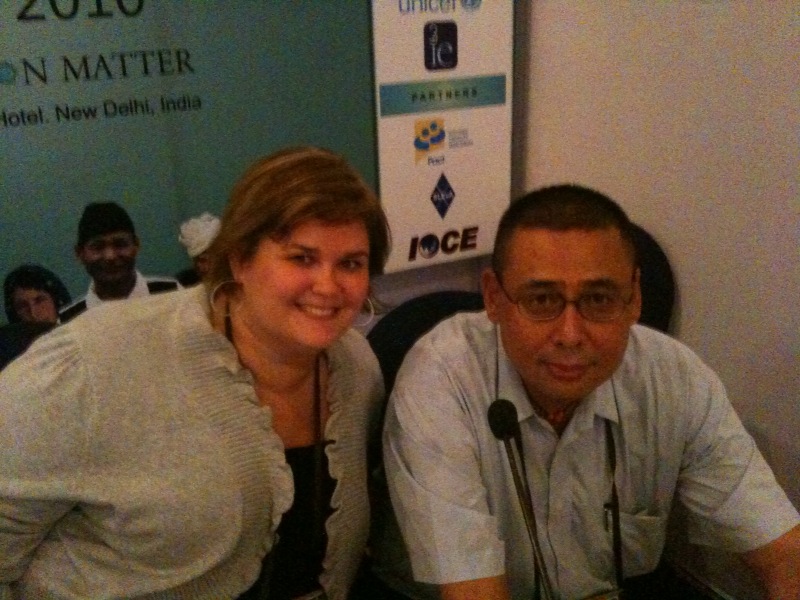Making Evaluation Matter
Making Evaluation Matter
I’m in Delhi attending The Evaluation Conclave, funded in the main by IDRC CRDI, The Rockefeller Foundation and the David and Lucille Packard Foundation. The conclave combines practical workshops on a variety of M&E methodologies in several development disciplines including education, health, climate change, conflict settings and more, with panels of selected paper submissions.
I spent yesterday afternoon with Sarah Earl and Raj Verma as they introduced OM, its origins, its value-add and its basic framework.
Sarah Earl and Raj Verma at The Evaluation Conclave October 25th
Most participants were there out of curiosity because OM, which started out as a quasi-experimental alternative (which can also be combined with other methodologies ) PME methodology, has become increasingly popular in the last few years as donors and NGOs grapple with the complexity of the environments they are working in . OM has attracted legions of followers who now have their own community of practice (http://www.outcomemapping.ca/). Despite its growing popularity participants at yesterday’s workshop did seem a little exasperated at the introduction of more arcane development terminology. I can understand their lack of enthusiasm for yet more jargon when I consider that many of the concepts OM is based upon are not new – but they are being re-emphasised and that’s significant. And whether we like it or not, language does matter, jargon matters and labels matter. Frameworks and methodologies acquire a stigma after years of usage. They fall in and out of favour with donors and NGOs and the terms they bear become affixed to them in our minds. By attaching jaded labels to reemphasised or reengineered concepts we can do those concepts a disservice.
The term boundary brings a new richness of meaning to partner. It forces us to think long and hard about who we work with directly, about who is within our sphere of influence. When pressed yesterday for these answers many participants had to concede that they were trying to influence people, agencies and systems that were beyond their reach. But this doesn't mean their efforts are fruitless. On the contrary they were invited to consider what other avenues were open to them – champions, NGOs and units within governments - that could be influenced and used to bypass clogs or resistance in the systems and environments in which they are working. In Sarah Earl’s words, ‘cause and effect is difficult to prove in an open system’ and we’re all working in open systems with multiple factors and actors at play. Multiple actors create change and that change process never ends. Once we accept that, a framework like OM which is really just a tool box of activities and exercises to help us gain perspective on our reach of influence, can help us to measure tangible outcomes in terms of behaviour. Because and I quote Sarah Earl again, ‘development is about people and peoples’ lives’, something that can be overlooked when evaluating projects and programmes.
Niamh Brannigan
GeSCI


